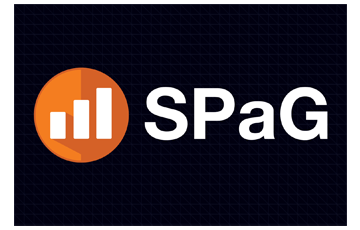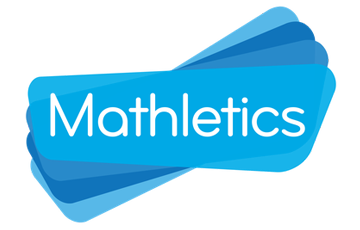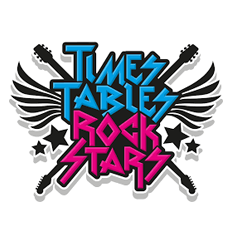Assessment
What does assessment look like at our school?
As part of our aim to establish strong links between school, parents and pupils, this section includes information about assessment at St. Edmund’s.
Introduction
At St. Edmund’s we believe that assessment is an integral part of high-quality teaching and learning. Our curriculum is assessed by teachers and subject leaders and subject planning is adapted in order to support pupils to build their knowledge and apply that knowledge as skills. Assessment is used to monitor and track pupil progress and inform future planning for groups of children or individuals. It helps us to ensure that our teaching is appropriately matched to the needs of our pupils, ensuring that they all achieve their potential.
Why do we assess the children?
We know that parents are very keen to know how well their child is getting on at school. Assessment has to serve a purpose and teachers are continually assessing the children through observations, pupil discussions, feedback and the marking of work so they can help them progress with their learning. Any questions that parents may have about how their child is assessed or assessment outcomes can be addressed by either your child’s class teacher or by contacting Mr Usher, our Assessment Leader.
The main purpose of assessment in our school is to help teachers, subject leaders and pupils to plan their next steps in learning. Outcomes from assessments are used to check and support monitoring evidence about standards of teaching in our school and to help us identify areas for improvement. We compare our performance with that of other schools through analysis of assessment data, working in collaboration with other local schools, providing peer to peer support amongst staff and conducting moderation activities between local schools and within school.
What criteria is used to assess the children?
In Nursery and Reception, the EYFS profile (a statutory assessment of children’s development at the end of Reception) is used by teachers to assess each child on outcomes in relation to the 17 early learning goals (ELGs).
In Years 1-6, pupils are assessed against the 2014 National Curriculum Programmes of Study for each subject taught. Pupils are expected to attain the ‘Age Related Expectation’ (ARE) by the end of each school year. The achievement of each pupil is assessed against all the relevant criteria towards the end of each term throughout the year.
Pupils are assessed as either ‘below the expected standard’, ‘working towards the expected standard’, ‘at the expected standard’ or ‘exceeding’ each descriptive profile.
Where a pupil is assessed as below or working towards the relevant criteria in a subject for that year, they will be provided with the same learning opportunities as their peers with material that is adapted to meet their learning needs. Where a pupil is assessed as exceeding the relevant criteria in a subject for that year, they will be provided with learning opportunities to apply their knowledge in different contexts and achieve mastery at greater depth. Assessment methods may be adapted to suit the needs of pupils with Special Educational Needs or Disabilities or English as an additional language. The EYFS Development Matters or pre-key stage interim framework KS1 and KS2 are used for pupils who have Special Educational Needs and are working below expectations for their year group / key stage.
When do assessments take place?
Progress made towards these ‘ARE’ is assessed in our school in three ways:
- In-school formative assessment This is used by teachers to evaluate pupils’ knowledge and understanding on a day-to-day basis and adapt planning of lessons accordingly. These may include:
-Assessment for learning in all lessons
-Adult observations of children
-Evaluations of marking and feedback from pupils
-Weekly mental arithmetic test
-Weekly spelling test
-Online assessments for Times Tables Rock Stars, Mathletics and Numbots
-Big Books for a variety of foundation subjects
- In-school summative assessments Termly for Reading, Writing, Mathematics and Science and biannually for the foundation subjects. These assessments enable teachers to evaluate how much a pupil has learned at the end of a teaching period and adapt their medium term plans accordingly. These may include:
-Prior knowledge quiz in Science
-White Rose Hub end of unit assessments in Science
-End of unit or topic quiz in Humanities
-EYFS Development Matters
-Termly NFER Assessments (December, March and June) in Maths and Reading
-Termly extended writing for assessment
-White Rose Hub end of unit arithmetic, problem solving and reasoning quizzes in Maths
-Multiplication Times Table check tracking (half termly)
-Phonics screening tracking (half termly)
-RWI phonics groupings (half termly)
-Assessments using previous SAT materials or Testbase resources
- National Statutory assessments Various year groups sit nationally standardised assessments which are used by the Government to hold schools to account. These include:
-Reception Baseline Assessment (RBA) in September
-Year 1 Phonics Screening Check in June
-Year 4 Times Tables Check in June
-KS2 SATs in Year 6 in May
Assessment judgements are recorded and backed up by a range teacher assessments, observational evidence and results from testing over time. Judgements are moderated by colleagues and subject leaders in school as well as by colleagues of local cluster schools to make sure assessments are fair, accurate, consistent and valid.
Is my child set any targets to help them with their learning?
Staff use information from the various assessments to set targets for individual pupils in English and Maths and these are shared with pupils and parents at termly parent/teacher meetings. Progress towards targets are evaluated during termly pupil progress meetings between the Assessment Leader and class teacher. Target groups or individual children are identified through analysis of progress and interventions are set up if necessary. SEN/D children have targets set on individual education plans or provision maps and these are also included in their SEN/D folders.
Will I find out how well my child has progressed?
Parents are invited to a ‘meet the teacher’ evening at the start of the Autumn term when each teacher sets out their age appropriate routines and expectations for the academic year.
During the Spring term, parents are invited to attend a 1:1 progress meeting to discuss their child’s progress since the start of the year, see their child’s work and agree targets until the end of the year. During the Summer term, parents receive a written report, summarising their child’s performance over the whole year. This report will include end of year teacher assessment judgements, relating to the National Curriculum descriptors.
Parents of pupils in Year 6 also receive a summary of the National Curriculum their child has attained in their end of Key Stage assessments and tests. Parents of children in Reception are also provided with a summary of their child’s achievement against the Early Learning Goals.
Parents are invited to discuss with the teacher their child’s end of year report towards the end of the Summer term. Additional meetings can be arranged by prior appointment with the relevant staff if parents have any concerns they wish to discuss.
Pupils with additional needs or disabilities have termly review meetings or as required by the nature of their provision.
Who is responsible for assessment at St. Edmund’s?
It is the responsibility of the Assessment Leader, other members of the SLT and the governors’ Standards Committee to monitor and evaluate the impact of our assessment procedures and review them in line with further developments or external changes.
Detailed termly analysis reports are reported to governors who monitor to ensure high standards and pupil progress throughout the school and to aid them in their role of holding the school to account.
 St Edmund's RC Primary School
St Edmund's RC Primary School





